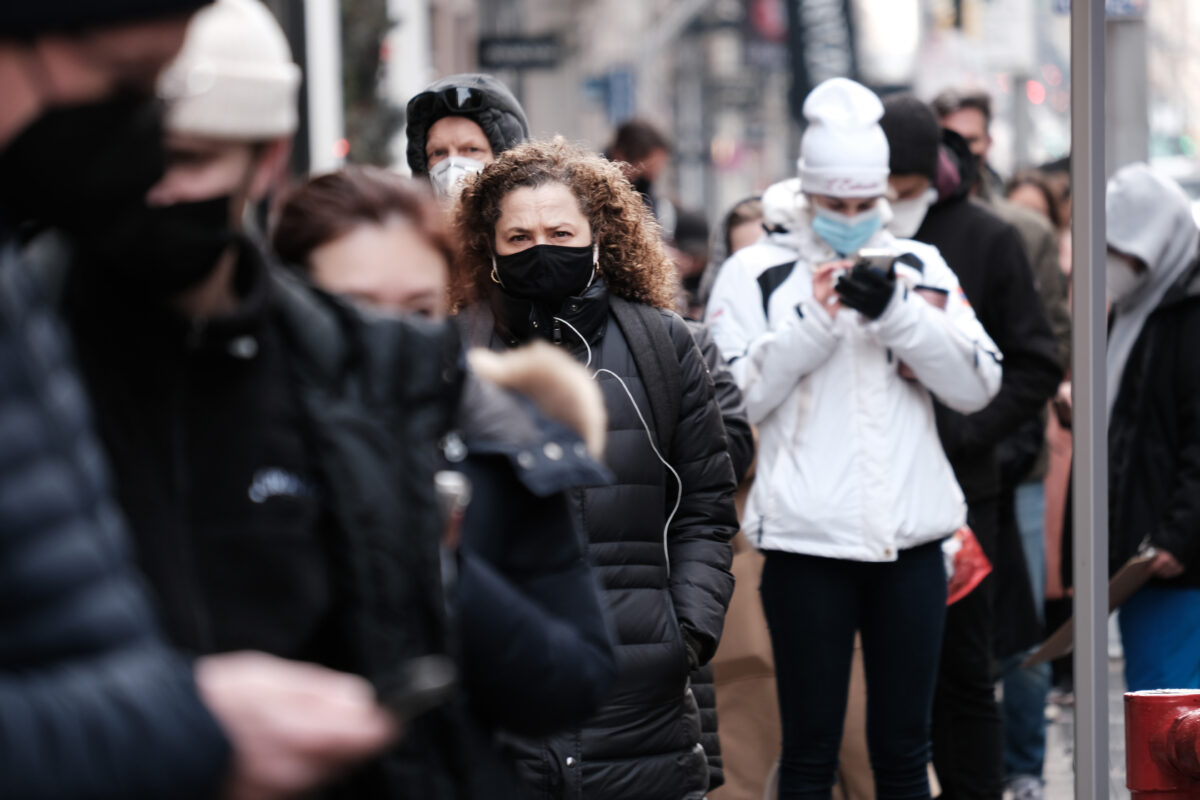


A new study suggests that people who contract COVID-19 but do not exhibit symptoms, referred to by researchers as “super-dodgers,” may have a genetic mutation that serves as a form of protection.
The research study was published in the journal Nature on July 19 and led by researchers from the University of California–San Francisco.
It offers the first evidence of a genetic basis for asymptomatic COVID-19 focusing on human leukocyte antigen (HLA), referred to as protein markers that signal the immune system when it is under attack.
“By studying their immune response, this might enable us to identify new ways of promoting immune protection against SARS-CoV-2 that could be used in future development of vaccines or drugs,” Stephanie Gras, a professor at La Trobe University, said in a statement.
According to the study, super-dodgers are more than twice as likely as those who become symptomatic to carry a specific gene variation that helps them obliterate the virus from their system.
The gene mutation enables virus-killing T cells to identify and attack the virus, even if it is encountered for the first time, owing to the virus’ similarity to seasonal cold viruses that the cells had already recognized.
This mutation, dubbed HLA-B*15:01, was carried by about 10 percent of the study’s population, which included 1,428 unvaccinated people who tested positive between February 2020 and April 2021, before the vaccines were widely available.
Of the total participants, 136 individuals remained asymptomatic for at least two weeks before and after testing positive for the virus. The study reveals that risk factors for severe COVID-19, like being older, overweight, and having chronic diseases like diabetes, did not appear to play a role in who remained asymptomatic.
However, the researchers emphasized that the mutation does not prevent the virus from infecting cells; rather, it prevents individuals from developing any symptoms, such as a runny nose and sore throat.
They found that 20 percent of participants who did not develop symptoms after contracting COVID-19 were found to carry at least one copy of the mutation, compared to 9 percent of those who reported symptoms.
“If you have an army that’s able to recognize the enemy early, that’s a huge advantage,” said Jill Hollenbach, the study’s lead researcher and a neurology professor at the University of California–San Francisco.
“It’s like having soldiers that are prepared for battle and already know what to look for and that these are the bad guys,” Ms. Hollenbach added.
A May 2022 research paper, published in PLOS Medicine following peer review, revealed that asymptomatic people are much less likely to transmit the virus that causes the disease.
It concluded that the secondary attack rate—the primary measure of the risk of transmission of SARS-CoV-2—was about two-thirds lower from asymptomatic people than those who were experiencing symptoms.
The research was based on 130 studies published between April 2020 and July 2021. The studies analyzed 28,246 people who tested positive for COVID-19, of whom nearly 12,000 experienced an infection but no symptoms.
However, while it is clear that asymptomatic infections don’t cause as much transmission as symptomatic ones, it is difficult to ascertain the true number of asymptomatic infections, the researchers said.
“Future studies should determine the asymptomatic proportion of SARS-CoV-2 infections caused by variants of concern and in people with immunity following vaccination or previous infection,” the researchers wrote.
“Without prospective longitudinal studies with methods that minimize selection and measurement biases, further updates with the study types included in this living systematic review are unlikely to be able to provide a reliable summary estimate of the proportion of asymptomatic infections caused by SARS-CoV-2.”
Zachary Stieber contributed to this report.
What topics would you like to read about? Please let us know at health@epochtimes.nyc

